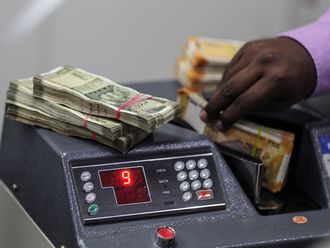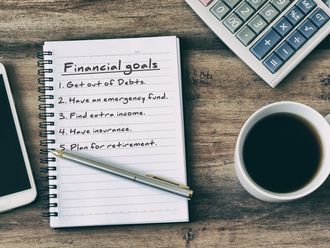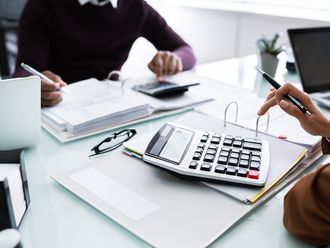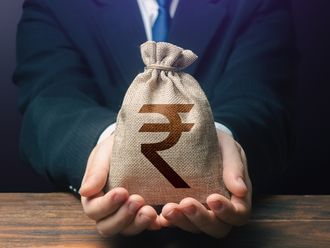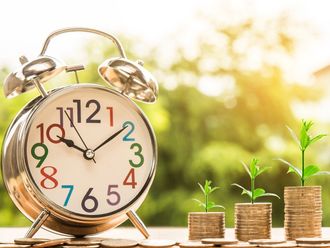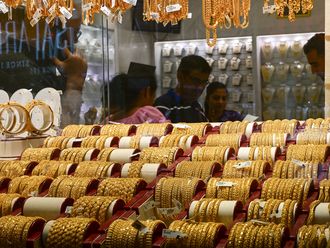
When budgeting, we often tend to look at a lot of our expenses in terms of monthly payments, and justify these expenses by saying, “It's just a few dirhams a month.” Sometimes, we even break costs down into weeks or days. But this type of thinking can be dangerous to our finances.
“Looking only at monthly expenses can mask the total impact of what you're spending. And when we view our expenses in isolation, we don't always see our full financial picture,” said Dubai-based wealth advisor Mohammad Shaan.
Looking only at monthly expenses can mask the total impact of what you're spending
Here are some things to think about when you tell yourself, "It's just a few dirhams per month."
“It all adds up”: Knowing the cumulative effect of routine costs on annual budget
“When you think of your expenses as individual costs that you pay on a monthly basis, you're seeing only a very small part of your finances at any given time,” Shaan explained.
“Combine these monthly costs, however, and you'll see how quickly they can add up and make it hard for you to save. This is especially true with subscription-type services, in which you may pay a seemingly low monthly fee for a product or service.”
None of the subscriptions may seem costly in and of themselves, but when you add them up, they could comprise hundreds of dirhams in monthly expenses and leave you with very little left over.
And because they're subscriptions, they may be automatically deducted from your checking account or credit card, so you may not even be fully aware that money is leaving or when.
“Through advertising tactics, a company can get us to think about costs in smaller chunks, and it is widely considered a common phenomenon now, and this is done in hopes of us spending more money,” explained Maddy Ivan, an Abu Dhabi-based retail and marketing consultant.
For instance, a gym could easily charge you Dh480 a year to join, but instead, they charge Dh40 a month and advertise that monthly amount because it seems like less.
“Granted, most of us would prefer to pay in monthly amounts because we may not have surplus cash on hand. However, most companies don't offer the option to pay in bulk, because even thinking about how much it costs each year can prove costly for the advertisers,” Ivan added.
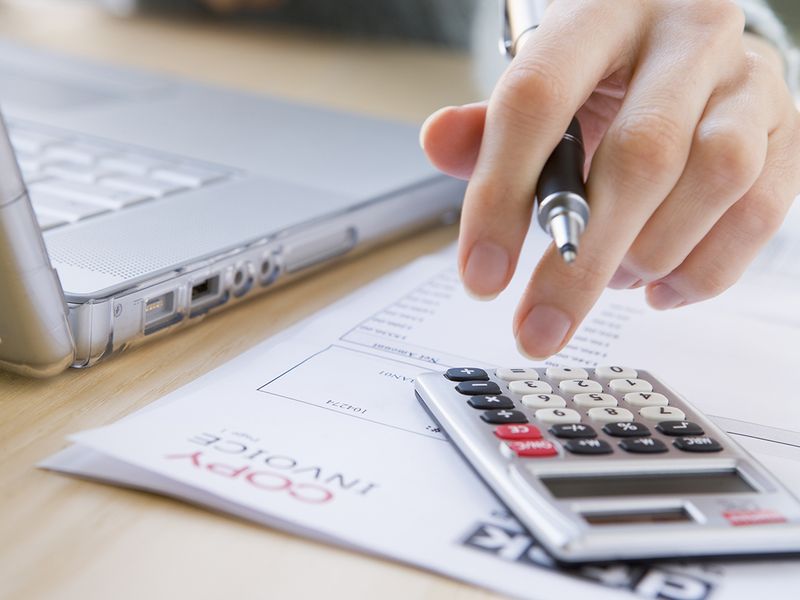
Advertisers also often use ‘the coffee analogy’: Here’s how to counter the argument
Every once in a while, someone will encourage you to donate money or buy a product, arguing that it will cost you ‘less than a cup of coffee’ each day.
“The underlying suggestion with ‘the coffee analogy’ is that coffee is a fairly low and everyday expense, and it's a compelling sales tactic,” said Ivan.
The next time someone comes at you with this pitch, finance experts say it is better consider examining it in a different way.
“First, ask yourself if you'd be willing to cut out your daily coffee in order to buy this new product or service. If not, then accept that your expenses will definitely rise. Second, recognise how much that cup of coffee each day actually is costing you,” Shaan said.
For instance, let’s say its Dh2 every time, but that's Dh10 during a work week, Dh40 monthly, and nearly Dh500 a year. Suddenly, you realise that the ‘cost of a cup of coffee’ isn't mere pocket change.
If you're paying for the car in full with cash, there is no room for a seller’s strategy to play out
A higher monthly payment is always a big deal
When financing a car or getting a car loan, you would have noticed how it’s easy to be attracted by the monthly payment, while at that moment overlooking the total costs over time.
“If you're paying for the car in full with cash, there is no room for a seller’s strategy to play out. But when breaking out the total into payments, the seller can convince you that a few extra dirhams are no big deal,” added Ivan.
For example, let's say you're looking to have payments of no more than Dh200 per month, but the seller may only be able to negotiate you down to Dh230. However, while that extra Dh30 may not seem like a lot, if you have a 60-month loan, that adds up to Dh1,800.
“If you were paying for the car with cash in full, you'd never think that paying an extra amount was reasonable. However, when one is forced to take a loan, normally one is willing to overlook the costs, rather than settle on saving up and paying later,” Shaan added.
“If you purchase a home, you will likely have a mortgage with interest payments. You may also have interest payments if you finance a car. When this happens, the total cost of your purchase is higher, even though you don't think of it that way.”
Let’s say you purchase a house with a sale price of Dh400,000, you may pay Dh2,000 per month over the course of 30 years, bringing the actual money paid to Dh720,000. Monthly payments can make large purchases feel more manageable, but they can also cover up the total cost of big-ticket items over time.

UAE experts’ tips to prevent small monthly bills from wrecking wreck your annual budget
Tip #1: Take your usage into account
It's easier to defend the "it's only a few dirhams a month" attitude if you regularly use the product or service in question.
One could argue that a high-speed internet subscription, while costly, is worthwhile if you use it for several hours a day to run a business. But what about all those things you pay for that you never use?
“Your gym membership may only be Dh10 a month, yet you haven't worked out in months. Streaming services may seem inexpensive, but you rarely stream any movies or shows,” added Shaan.
“These monthly costs can really add up, and they are made worse if you are spending money on things you never use.”
Monthly costs can really add up, and they are made worse if you are spending money on things you never use
Tip #2: Calculate costs in hours spent
While money is replaceable, time can only be spent, not earned. That's why it's helpful to start thinking of prices in terms of hours, rather than dirhams.
Remembering that you've already traded your time for the money you plan to spend on whatever has caught your fancy can be enough to help you keep your cash in your wallet.
Vicki Robin and Joe Dominguez popularised this strategy in their best-seller book ‘Your Money or Your Life’, where they make the case that your time is literally money, since you trade your time away in order to get money.
“When you calculate costs in hours spent, you determine the amount of money you net per hour, and compare that number to the cost of goods and services to buy,” said Dubai-based money planner Rupesh Naish. “With your calculation in hand, you have a better sense of how much time any one purchase costs you.”
Let's say your monthly income is Dh5,000. If you multiply that by 12, you get Dh60,000. Divided by 2,000, you get an hourly wage of Dh30.
Having that number in your head can re-contextualise prices, because it gives you a concrete value of your hours. When you're tempted by a home assistant device that's on sale for Dh150, the price may seem like no big deal. But is it worth 5 hours of your work time?
“A lot of times it has been observed that you may ultimately decide that spending an amount on an item is worth the equated time spent in work — and that's absolutely fine. Calculating prices in hours worked means that you're actually clear on what the true costs are,” Naish added.
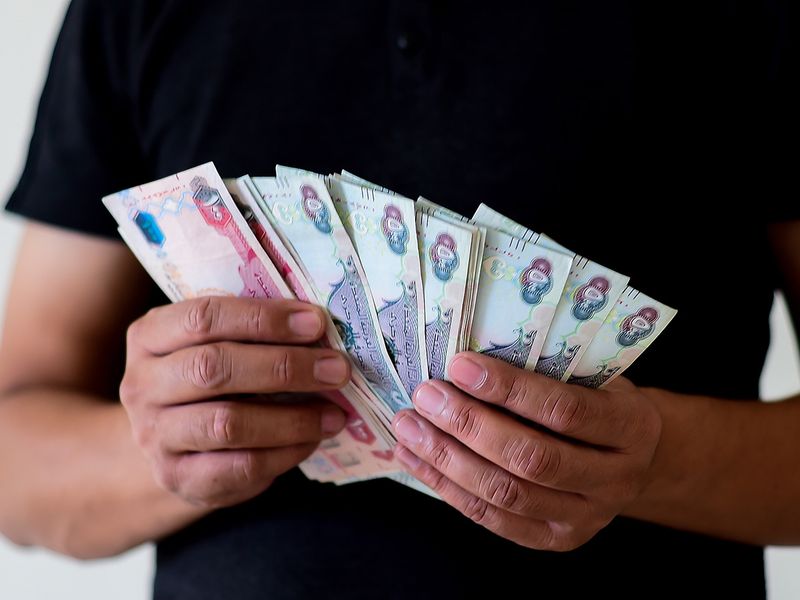
Bottom line? Saving is a long-term goal, even the small amounts cost dearly over time
UAE-based financial planners reiterate that it's crucial to remember that building wealth and achieving financial freedom is most often a very long process.
“It's the relatively small amount of money you save each day that piles up over time and becomes something substantial,” Naish cautioned. “It's very easy to dismiss a small weekly or monthly expense, but it's those expenses that can make the difference between accumulating wealth and debt.
“While it’s not hard to part with your money, especially in our increasingly cashless society, recognising the time cost of purchases, asking yourself why you're buying, and honouring your impulses by creating a purchase wish list can all help you to pause between your desire and your purchase,” Naish added.
There is a valid reason why ‘wait before making any purchases’ is a classic personal finance tip. Forcing yourself to wait to decide if you actually want to spend money on an item can help mitigate the emotional element of spending decisions.
When analysing spending, it's helpful to examine all money as potentially helpful in your quest to build wealth. One hundred dirhams now, if saved, could represent much more in the future. If spent, it's gone forever.

